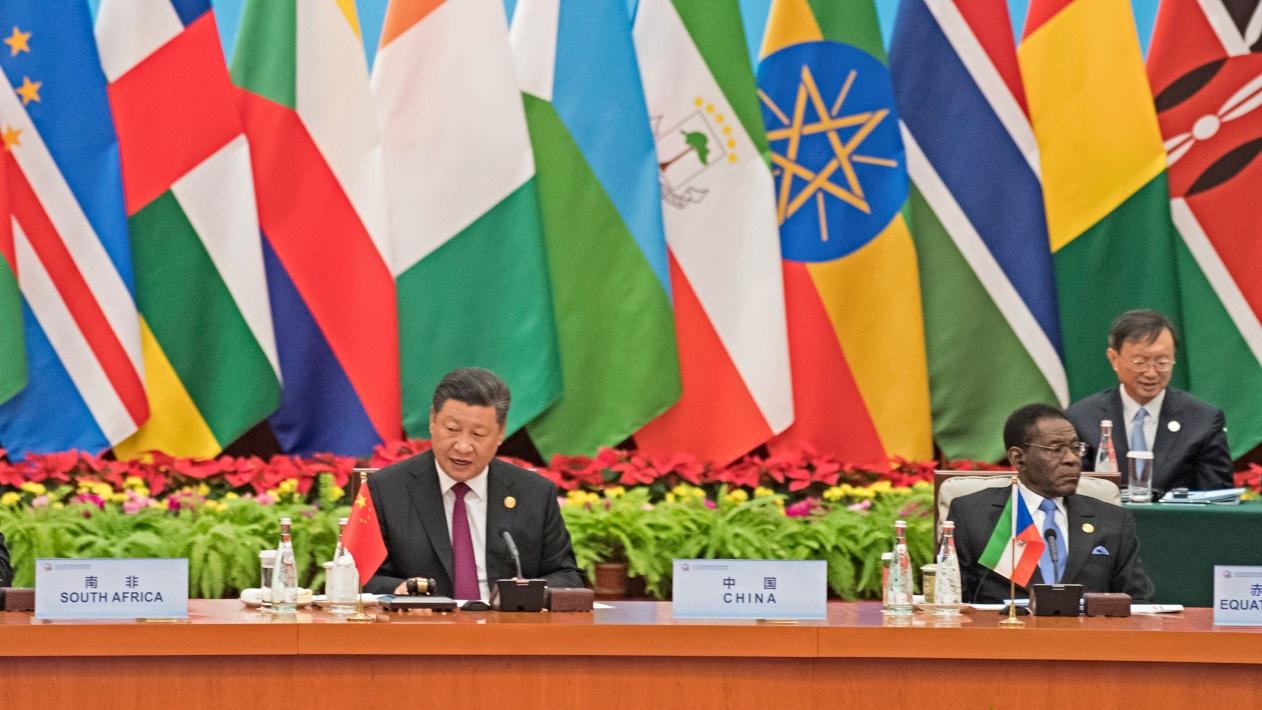The sale of a lithium mine in Zimbabwe to a Chinese company has seen a polarised public response, with many concerned there will be few national or local benefits. The sale highlights the need for greater regulation of foreign investors in the country, writes Archie Mathibela, to enforce business obligations and protect local interests.
In early 2022, Chinese company Zhejiang Huayou acquired controlling rights to Zimbabwe’s Arcadia mine, an Australian majority-owned emerging energy minerals company controlled by Prospect Resources. The US$422 million lithium deal has attracted significant media attention and mixed public sentiment.
The ensuing polarisation pulls back the veil on broader socio-economic and political forces at play in Zimbabwe’s natural resource deals – seen by many as a microcosm of the rest of Africa. Where some sections are upbeat about Zhejiang Huayou’s acquisition, as a beacon of progress for Zimbabwe’s economy and a catalyst for jobs and tax revenues, others are more circumspect. Sceptics bemoan what they see as the government’s lack of foresight in securing a stake in the mine, given lithium’s strategic value for the auto industry’s burgeoning clean energy market.
But there are five other lithium operations in the country – all licensed before Arcadia. So, what is so special about Zimbabwe’s latest lithium project?
Times are changing. Electric vehicles are about to reach tipping point in market penetration globally, and as a result investment in battery technology and production is rapidly rising. China is targeting 20% of electric vehicles (EVs) production by 2025. France has set a 2040 deadline for all vehicle sales to be EV or hybrid electric. The UK has targeted zero greenhouse gas emissions in domestic output by 2050. Lithium is essential to these goals.
Globally, industry investment in battery production and its value chain is increasing. This, in turn, is driving demand for underlying battery raw materials, including lithium, whose demand has overtaken that of non-lithium batteries.
What’s the missing link? Zimbabwe still uses an archaic mining law, passed in 1961, to regulate a commodity touted as the next century’s game-changer. The Mines and Minerals Act, which gives the President carte blanche over all mineral resources, is woefully inadequate as an arbiter of beneficial ownership and control. Further, onerous legal requirements are placed on local companies to acquire certain mining concessions, which are skewed towards monopoly capital.
Zimbabwe’s alternative financing sources
It is imperative to look at alternative sources of financing to circumvent the country’s liquidity challenges, without sacrificing strategic assets. Despite past failed attempts arising from inconsistent government policies, leveraging the diaspora community is worth another shot. In 2019, the Reserve Bank of Zimbabwe estimated diaspora remittances at US$1.4 billion with greater upside potential. A properly structured diaspora offering can entice more localised equity investment and beneficiation as a counterbalance to calls for more foreign direct investment.
Past action shows that the government can be persuaded to change the rules. For instance, Prospect Resources was granted national project and ‘special economic zone’ status, amongst other incentives.
This begs the question: why the lethargy in amending an old statute to empower locals in a legislature run by natives, 43 years after independence? Many Zimbabwean communities have been left counting their losses in the wake of projects hailed as progressive and beneficial for local communities. Legislative oversight and robust implementation in filling policy gaps are therefore critical.
Heading towards scheduled elections in 2023, President Mnangagwa will be looking to shore up support from a lukewarm and restive electorate. Winning a political mandate is not only about managing perceptions but delivering tangible results on the ground to positively impact lives. Materially change communities for the better would be a good start.
Locals need secure land tenure rights so they can leverage their holdings as substantive equity partners when they join forces with foreign investors, instead of settling for menial jobs. Currently there is barely room to manoeuvre. Resource nationalisation cannot be the panacea either, as shown by the many promising industrial projects in limbo. Yet other avenues should be sought, such as pushing for local communities to achieve devolution and create localised economies independent of patronage networks.
Recommendations
The latest mining acquisition highlights the urgency of the government’s responsibility to ensure that those who lost their lives fighting for generational prosperity did not make sacrifices in vain. Regulatory institutions should be more vigilant in granting necessary approvals contingent on investors fulfilling certain obligations that further local community interests.
When locals benefit, the local economy flourishes. When the country is left open to the complexity of western economic systems, there is an existential threat to sovereignty. Environmental disasters and negligible financial benefits including through transfer pricing, and other licit and illicit financial leveraging instruments, remain a substantial risk.
The consequences of leaving corporations to their own devices are too dire to contemplate. Zimbabwe needs more decisive leadership.
Photo by Aleksandar Pasaric from Pexels.






The big L – eadership is missing as you correctly point out. This an area begging for good strategy, foresight and some common sense!
i agree with you
The author highlights a common problem faced by many Africans states..the problem of outdated laws and further lack of government effort in assisting and ensuring that the locals partake in these activities
Great article, there is realy need to have leaders with a vision to see great oppotunities that lie ahead .
Huayou is mining lithium, a vital element in rechargeable batteries, for the second time in less than a week. It is the latest acquisition of natural resources by Chinese corporations outside of China in order to increase supply in order to fulfill demand from the fast-growing electric vehicle market.
Thanks for the wonderful information admin. its useful to all
Thanks for sharing such a great content. Keep it up.
In March 2023, China Natural Resources entered into an agreement to acquire US-based Williams Minerals (Pvt) Ltd which owns lithium mining rights in Zimbabwe.2